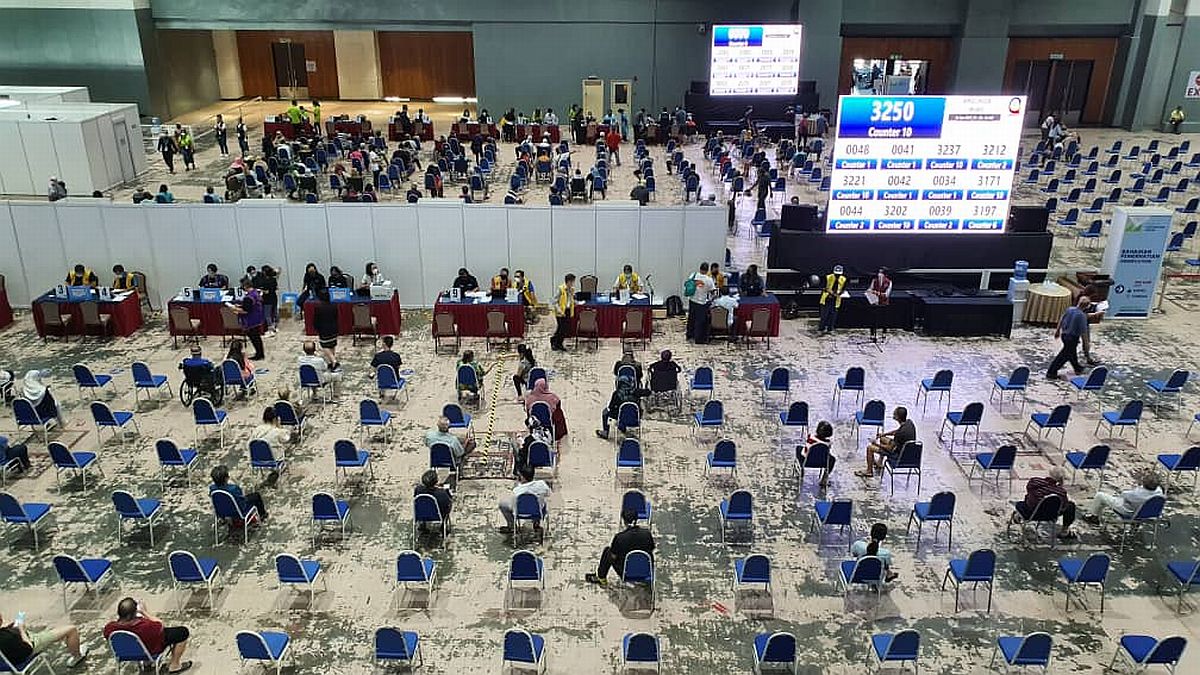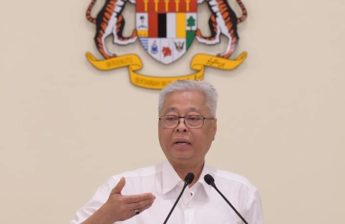KUALA LUMPUR, June 12 – Deputy Health Minister Lukanisman Awang Sauni today defended the procurement of Covid-19 vaccines by the Perikatan Nasional (PN) administration during the pandemic.
He also said it was unfair to compare the time when Malaysia received coronavirus vaccines to vaccine producer countries like the United Kingdom and the United States that would have prioritised their citizens in getting vaccine supplies quicker than other nations.
“I wish to stress that the government’s decision to procure Covid-19 vaccines at the time was the best and the right decision; it’s a matter of life and death of our people,” Lukanisman told the Dewan Rakyat today when wrapping up debate on the Covid-19 Vaccine Procurement Management White Paper.
The deputy minister in Prime Minister Anwar Ibrahim’s government also pointed out that even though the National Covid-19 Immunisation Programme (PICK) began in February 2021, later than Singapore, the United Kingdom, and the United States, Malaysia achieved 80 per cent vaccination coverage in September 2021, five months earlier than the original target of February 2022.
Currently, Malaysia has achieved 84.4 per cent population coverage of complete vaccination, equal to Singapore (87.5 per cent) and the Philippines (87.5 per cent), and even better than countries that launched their Covid-19 vaccine rollouts ahead of Malaysia like Thailand (77.6 per cent), the UK (74.6 per cent), Israel (73.8 per cent), and the US (68.8 per cent), Lukanisman said, citing statistics by the World Health Organization (WHO).
The deputy health minister pointed out that Malaysia had among the fastest vaccination rates globally, once recording 583,120 doses given in one day on July 28, 2021.
“Malaysia’s success in exiting the pandemic was also partly due to the implementation of PICK, to the extent that the country was nominated as among the best countries globally that recovered quickly from Covid-19.”
Lukanisman said the previous government had made the decision to procure Covid-19 vaccines, even though the contracts did not favour the government, as it was “literally a life and death issue” at the time.
He acknowledged that the Attorney-General’s Chambers had raised concerns in the draft agreements with vaccine manufacturers that, as a whole, favoured the companies.
“Even though the government was aware that the agreements did not favour the government, according to the Attorney-General’s Chambers, the government had to make a policy decision to continue with the urgent purchase based on public health and public interest.”
Lukanisman said it was a supplier market during the early phases of the pandemic, allowing vaccine manufacturers to set more favourable terms for themselves.
“Based on several procurement negotiation sessions, vaccine producers informed [the government] that the template for the contracts was a global template used by all countries in dealing with vaccine manufacturer companies.”
The deputy health minister explained that Covid-19 vaccine prices were protected by non-disclosure agreements (NDAs) that the Malaysian government, like other governments, had signed with vaccine manufacturers.
The Malaysian subsidiary of American pharmaceutical giant Pfizer, for example, required the government to sign a confidentiality disclosure agreement, a binding term sheet, and a manufacturing and supply agreement for procurement of Pfizer’s Covid-19 vaccine.
“If the Malaysian government did not sign these documents, any early negotiation or the sharing of information, like the content of active ingredients and early findings from clinical trials, would not be shared with the Malaysian government,” Lukanisman said.
“The process of vaccine procurement was unprecedented for the government. The change in government procurement protocols that involved the Ministry of Health, the Ministry of Finance, and the Attorney-General’s Chambers had to be done because the government was forced to procure vaccines that were not yet produced and not yet registered.”








